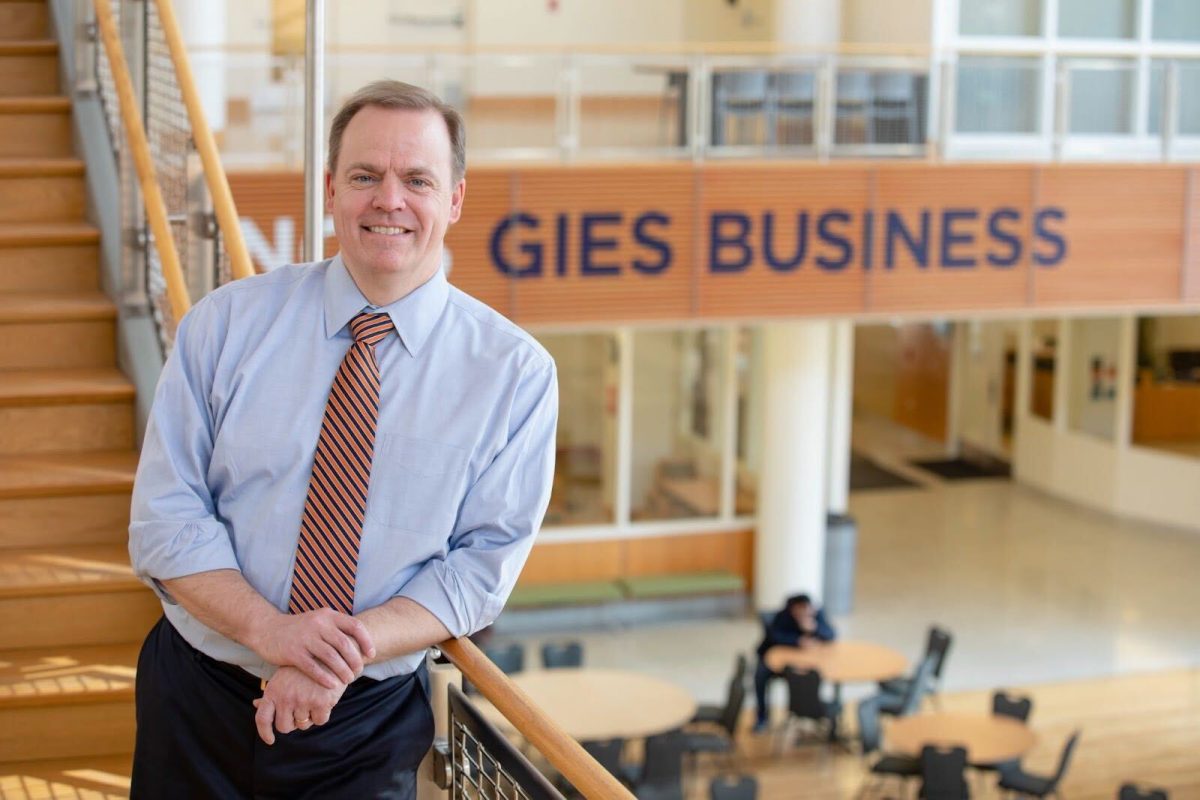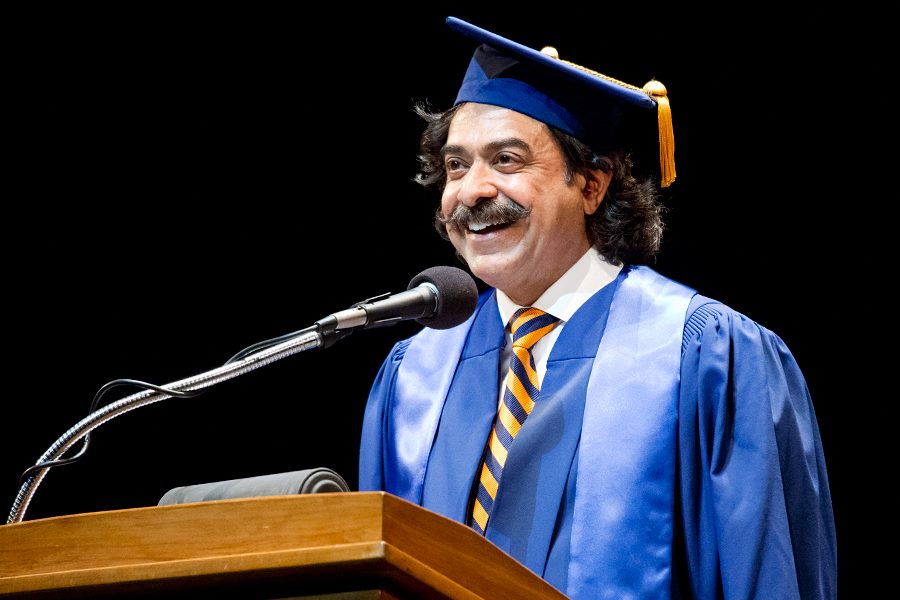Last month, Jeffrey Brown announced he would be stepping down as dean of the Gies College of Business. He will remain in his position until a replacement is found.
Brown received his bachelor’s degree from Miami University, his doctorate in economics from MIT and his master’s of public policy from Harvard University. He joined Illinois faculty in 2002 and was elected as the college’s 10th dean in 2015.
Brown has also served as an economic adviser for the White House, quested across almost all of the 63 U.S. national parks and sat on the Berlin Wall as it fell.
Despite his resume, Brown sees his time with the University as his best. His decision to scrap the traditional MBA program and invest in an online counterpart prior to COVID-19 led the online iMBA program to be awarded MBA Program of the Year in 2022 by Poets&Quants. It is currently the fastest-growing MBA program in the world.
However, Brown chooses not to be included in business school rankings because of the obsession with exclusivity and inconsideration for costliness. After nine years at the University, Brown discusses his decision to step down.
Get The Daily Illini in your inbox!
This interview has been edited for clarity.
The Daily Illini: Can you briefly explain why you’ve decided to step down?
Brown: This is my ninth year, and when I came into the role, I sort of both publicly and privately stated that I wouldn’t do more than 10, in part because I have a belief that having one person in a leadership role for too long is not good for the organization — it can stifle the growth and development of other leaders within the organization if they feel that they don’t have the opportunity to move up.
As I looked at where we are, I realized that we have accomplished everything that we set out to do when I became dean … and more. It’s a good time over the next year or so to be doing a new round of long-term visioning and strategic planning to figure out where we want to take the college.
It was a hard decision. I recognize there’s a very (high) possibility that I will someday look back at this as the best job that I ever had.
But, you know, I’ve got a great default option. Absent any other decision, I get to return to being a member of the faculty, and being a senior faculty member at a great research university is one of the best jobs ever. So, it’s not like I’m adrift at sea. I have something really good to go back to.
DI: Do you have any personal endeavors you plan on going after?
Brown: I mean, absolutely. For me, that includes a lot of outdoor time. I’ve had a goal of going to all 63 U.S. National Parks. I’ve been to 49 of them. I also plan to continue to do some thinking and writing about the future of higher education. I have a few research projects that haven’t gotten the attention that they deserve while I have served as dean that I will try to move forward. So, yeah, I am looking forward to the time to kinda regroup and reconnect with things that I love.
DI: What were some of the considerations you took when making your decision?
Brown: Steven S. Wymer Hall is under construction. It’s going to be open on Jan. 25. Selfishly, it would have been fun to be the dean when that building was opened because I have really been driving that project from day one.
I recognize that any new dean who comes into the role needs to have an opportunity to make a difference early on, to build some momentum for their leadership so that they can effectively lead the college for hopefully eight to 10 years.
The cons of stepping down is I do love this job. But, I don’t want the college to get stale. I think bringing in a new leader is always an opportunity for an organization to engage in some self-reflection about where it wants to go.
DI: What do you think that relationship with the new dean will be like?
Brown: Well, that is up to the new dean. I will make sure that they know how to reach me at any time for advice or counsel, but they will need to ask for it. I will not provide it unsolicited. I will do everything I can to help make the next (stage) successful.
DI: Do you see the residential MBA program coming back?
Brown: I mean, no, never say never, but no, I think the way the market has evolved, it has proven to be a really good decision. Our online program is doing extraordinarily well. I think since our announcement, additional schools have gotten out of it. Almost no one is entering the residential market.
DI: Where do you see higher education heading?
Brown: So, technology has obviously changed. It makes geography less relevant. At the same time, public support for higher education is declining, in part because people view it as expensive because it is much more expensive than it used to be.
There are other factors too. If we were going to sit down today and design a higher education system, I don’t think we would come up with a system where people spend four years on campus and then are done. Instead, I think we would be weaving education in with people’s work lives and family lives throughout their entire lives because the skills that we’re going to need are going to be changing and evolving.
(One of my favorite examples was) back in 2016. This guy by the name of Al Harms; he was a four-star admiral in the United States Navy. He was the commander of the U.S. Pacific Fleet. That is the same position as, you know, who was commanding Pearl Harbor back in 1941. So, he retired from the Navy and was looking to do something different. So, he came back, and I think he was in his 60s at the time, and he earned his MBA from us.
We have so many stories like that of people around the world. People who’ve been displaced from their home country and have been able to continue to work on their degree. While moving from country to country, people switch jobs — just all kinds of things.







